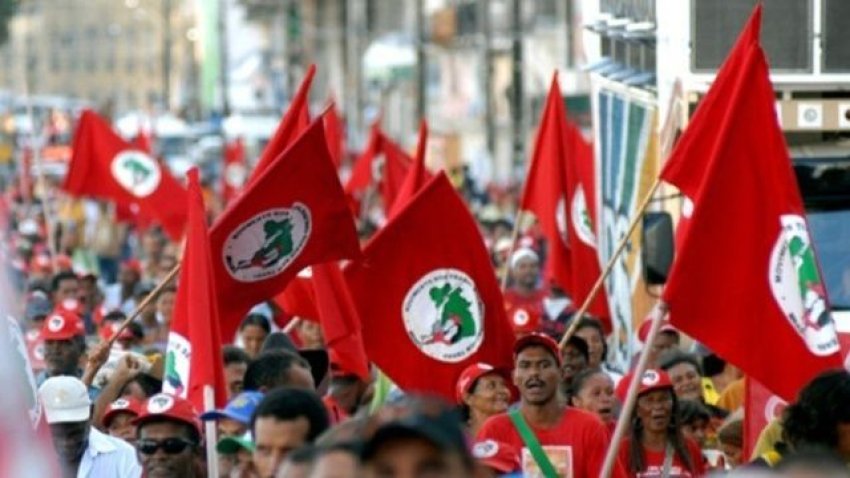
Brazilians vote on October 28 in an election that will be critical for the future of Latin America. Far-right candidate Jair Bolsonaro, who topped the first round of the presidential election on October 7, faces off against the Workers’ Party (PT) candidate Fernando Haddad in the second round vote.
Facing the real prospect of a Bolsonaro win, the country’s social movements are stepping up their efforts to confront fascism, at the polls and on the streets.
Speaking to Brasil de Fato’s Lucio Garriga and Gerardo Szalkowicz, Rural Landless Workers Movement (MST) leader Alexandre Conceição analyses the rise of the “Bolsonaro phenomenon”, with the far-right candidate taking 46% in the first round, and discusses how the largest social movement in the continent is preparing itself to confront a likely ultra-right government.
What is the situation like in the lead up to the second round of voting for the presidency and governorships?
We are involved in a fierce campaign where the enemies of the working class and of a free Latin American continent have united behind the fascist candidature of Bolsonaro. The economic elites, the judiciary and the corporate media are openly supporting him.
What we are also witnessing is a cyber war being fought via social media, in particular on WhatsApp — a fierce campaign of lies against our candidates.
If we could get rid of social media for two days, Bolsanaro’s campaign would completely collapse, because his strategy is to not do any interviews or participate in political debates.
His campaign is instilling hatred and violence, with a promise that his government will resolve the problems of corruption.
This is what we are up against.
Haddad has only been campaigning for 40 days and began with 4% support in the polls [having taking over as the PT candidate after the PT’s jailed popular leader Lula was barred from running by the Supreme Court]. Now he has almost 42%, just 8 percentage points from reaching 50%.
They are trying to convert Bolsonaro into a kind of mythical character, but there is no myth about him — he is a monster who will hand over Brazil’s national sovereignty.
How do you analyse the “Bolsonaro phenomenon”?
Bolsanaro is the consolidation of the coup [against former PT president Dilma Rousseff in 2016], which has as its base a campaign that promotes hatred, violence and misogyny. His political and economic project is to hand over Brazil’s natural resources and privatise all our goods and state-owned companies.
He is supported by foreign capital, above all US corporations.
How have the evangelical churches influenced the rise of Bolsonaro?
The evangelical churches are also part of this coalition of reactionary forces, via its pastors who only think about money and not religion.
They have campaigned strongly against democracy and in defence of “the family”, private property and the idea that violence can only be fought with more violence.
The evangelical churches have played a fundamental role in building support for the fascist candidate, above all in poor neighbourhoods.
But it should be said that this does not include all of the evangelical church; there are many pastors who support democracy and support Haddad.
How are you preparing to face a Bolsonaro government, keeping in mind the threats against the MST?
The situation will be very difficult because it will further incentivise violence via paramilitaries, media attacks and the criminalisation of dissent.
We have resisted coups, dictatorial governments, neoliberal governments and, without doubt, we will resist a fascist government if it comes to power.
We will have to adapt our security measures and our strategy of continuing to occupy land, but at the same time we will continue to produce food while protecting life, the environment and the territories we have won through land reform.
We also hope to be able to count on a lot of solidarity from Latin America and the world.
I remember what the coup in Honduras in 2009 was like and a song that the Honduran resistance sang, which said: “They are afraid of us because we are not afraid.”
We are not afraid of confronting a fascist government.
[Translated from Brasil de Fato by Federico Fuentes.]